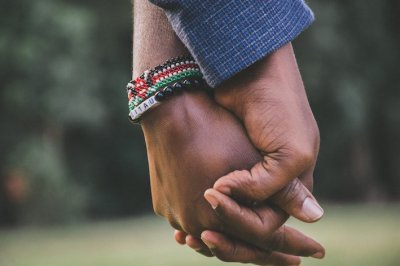Mature Relationships – Is Yours One? 10 Ways to Know for Sure

photo by Git Stephen Gitau for Pexels
by Andrea M. Darcy
Yes, we might be adults with a big career, or seen as very responsible by our peers. But that does not mean we have mature relationships when it comes to love. In fact some of us revert to little more than manipulative children with our partners.
What do mature relationships really look like? And what might be keeping you from being in one?
10 Signs of a mature relationship
So then what does a mature relationship actually look like? First of all, emotional maturity is nothing to do with being serious all time (particularly when adult playfulness is so healthy and necessary). But see if the below resonates.
1.You do not source your sense of self or happiness from your relationship.
Mature adults are self-sourced. They have put the work in to feel good about who they are and what they have to offer. They do not make it someone else’s job to make them happy, as if that other person is a parent who must soothe and appease them.
And in mature relationships we don’t have some false Hollywood notion we are supposed to feel good all the time, either. A relationship has ups and downs, and we are prepared for that.
2. There are no ultimatums.

photo by Vera Arsic for Pexels
An adult relationship does not involve ultimatums, it involves negotiations. You both share what you find hard to handle, and together find ways to navigate things.
There is no threat to, say, leave if your partner does things you don’t like. The endless push-pulling this sort of ultimatum creates kills any sense of commitment, which is also a perfect way to have an unhappy relationship.
A research overview of over 40 studies on relationships found ‘perceived partner commitment’ as the most important factor for someone to feel they were in a quality relationship.
3. You do not need to be right. Nor is their constant blame.
We all resort to blame now and then. A mature relationship means we apologise if we blamed the other in the heat of the moment, then take responsibility for our part in things.
Instead of seeking to be right, we seek to see their side and find a balanced way to look at things, or to agree to disagree. We do not need to use blame and making someone ‘wrong’ to boost a fragile sense of self.
4. You like yourself at least as much as you like your partner.
The moment we are idealising someone else as better than us or more worthy than us, we are in child mode. It’s a way of giving up our personal power, a sort of learned helplessness.
A mature relationship means we put in the time and effort to like ourselves despite our flaws. And we see our partner’s flaws but appreciate them regardless.
5. You accept that your partner will mess up sometimes.
A child see an adult as needing to be someone they look up to. Adults recognise that other adults are fallible and will sometimes even (gasp) lie and betray them.
A child explodes and believes they have been ‘let down’, unable to see they themselves have done similar in their lives. An adult seeks to address the situation by processing it and finding resolution.
6. You choose relationships that are safe, and help create that safe environment.
 In a mature relationship you can share what excites you and what troubles you without fear of the other person’s reaction. And they can do the same, counting on you to listen to them and not instantly react to things you might not like. To see them behind their opinions and behaviours.
In a mature relationship you can share what excites you and what troubles you without fear of the other person’s reaction. And they can do the same, counting on you to listen to them and not instantly react to things you might not like. To see them behind their opinions and behaviours.
It’s not that you can’t disagree or be upset, it’s that you do so in a way that is about the issue, not about them personally.
A safe environment also means one free of endless resentment. There is no constant attack for past mistakes. Failures are mended, not weaponised.
7. You practice self-care and you are working on yourself.
When we are in mature relationships we don’t suddenly let everything go and expect the relationship to carry us or allow us to coast along. We recognise that we need to continue to take care of ourselves, invest in ourselves, and keep working on our issues.
8. You work together on things, it’s collaborative.
And if relationship issues do arise, or if one of you faces a life challenge? Things are a team effort. There is not a ‘fixer’, on partner who takes care of everything when things go wrong (aka acts the parent). And the other partner doesn’t sulk and do nothing (aka act the child) as the other partner fusses about.
9. Mature relationships mean you stick to your agreements.
Adults recognise that trust is an essential part of any relationship, and do their very best to stick to agreements. If they can’t, if something changes, they are honest and transparent with the other person about it and seek a solution. Childish behaviour means promising something you can’t deliver, then lying about why.
10. You love your partner, but you could live without them.
Psychotherapist David Richo puts it perfectly in his book, “How to be an Adult in Relationships: the Five Keys to Mindful Loving“. He says —
“A mature partner ‘loves you sanely, rather than needs you desperately’. And vice versa.”
Adults practice interdependency, where we are mature enough to provide all our practical and emotional needs ourselves, but we choose to depend on the other over need to. Children need their parents to provide everything, from food and shelter to love, attention or affection. And children are clingy, screaming when their parents go out for the night, sure they are going to die being left with a babysitter.
Still not sure? Conflict will reveal all
If you aren’t sure if your relationship is or in’t mature, the one place to look is at how you engage in conflict.
You won’t avoid conflict, but you won’t use it to have temper tantrums, either.
Children tend to react in two ways when it comes to conflict. They run and hide, or they have irrational temper tantrums. In an immature relationship, these two sides tend to come into play, with one partner avoidant and the other overreactive.
Yes, we can all ‘blow our top’ now and then. But in mature relationships, conflict is generally constructive. It is used to find resolution, grow, and move forward.
And as touched upon above, adults negotiate, take responsibility, and compromise. They do not seek to be right, use blame, weaponise past faults, or threaten with ultimatums to get what they want.
Why we are a child when it comes to love
Nobody chooses to have relationship struggles, or acts in ways that leave them lonely or misunderstood. Relating is a skill, and if we aren’t good at it it’s as something happened so we did not learn it well.
We generally have problematic relationships because somewhere along the line, we learned that struggle is what love looks like. Or we learned that acting out is what one must do to gain attention and love. This can happen, for example, if we didn’t have a caregiver we could rely on to give us safety and affection no matter what. Or if we experienced a trauma that left us scared to trust, or convinced we are flawed.
Can therapy help me have mature relationships?
There are great resources out there to help when it comes to relationships, with many great self help books and online courses. Practical tools like journalling and mindfulness are also useful.
But if your relating issues are connected to trauma or attachment issues, therapy is recommended. It creates a safe, non judgemental space to process and understand long held hurts, grow your sense of self, and also learn new ways of relating that are productive over destructive.
Time to grow up and love better? We connect you to one of London’s top teams of expert therapists in three central London locations. Or use our sister site to find UK wide affordable therapists and online counsellors.
 Andrea M. Darcy is the lead writer for this site. With training in person-centred counselling and coaching, she is a popular mental health writer of thousands of articles. Her fave subjects are relationships and trauma. Find her @am_darcy
Andrea M. Darcy is the lead writer for this site. With training in person-centred counselling and coaching, she is a popular mental health writer of thousands of articles. Her fave subjects are relationships and trauma. Find her @am_darcy




